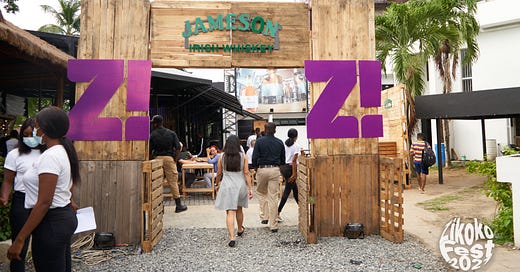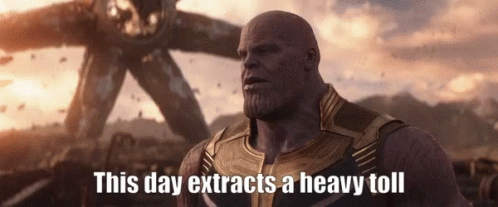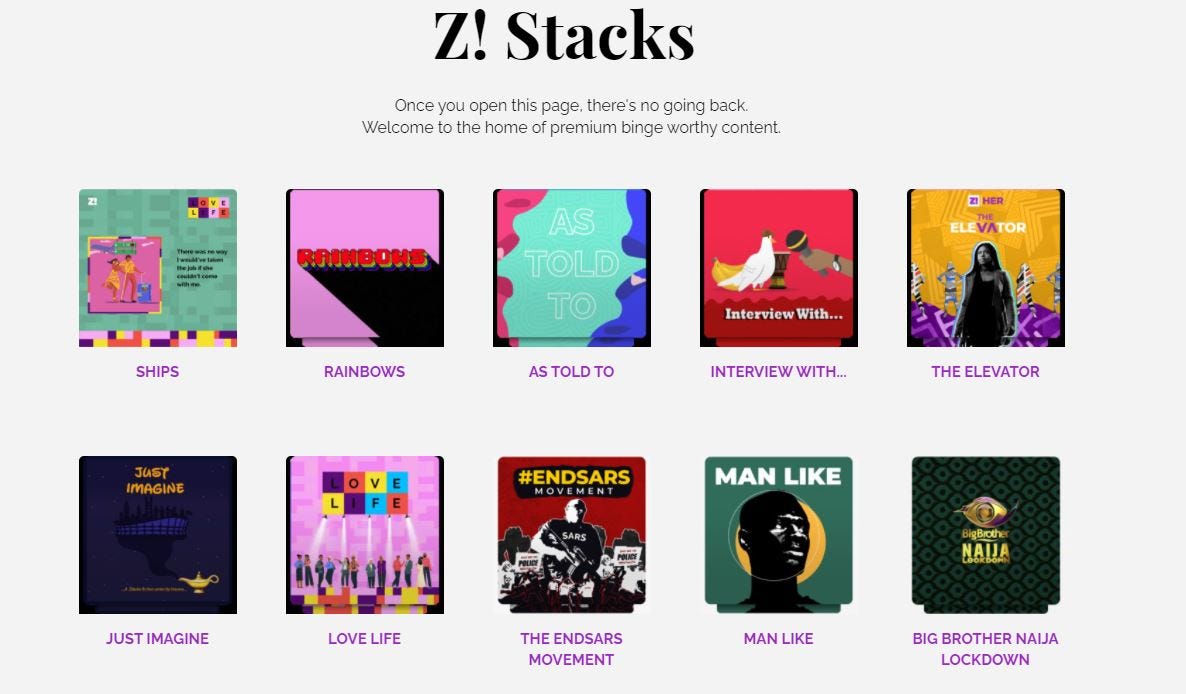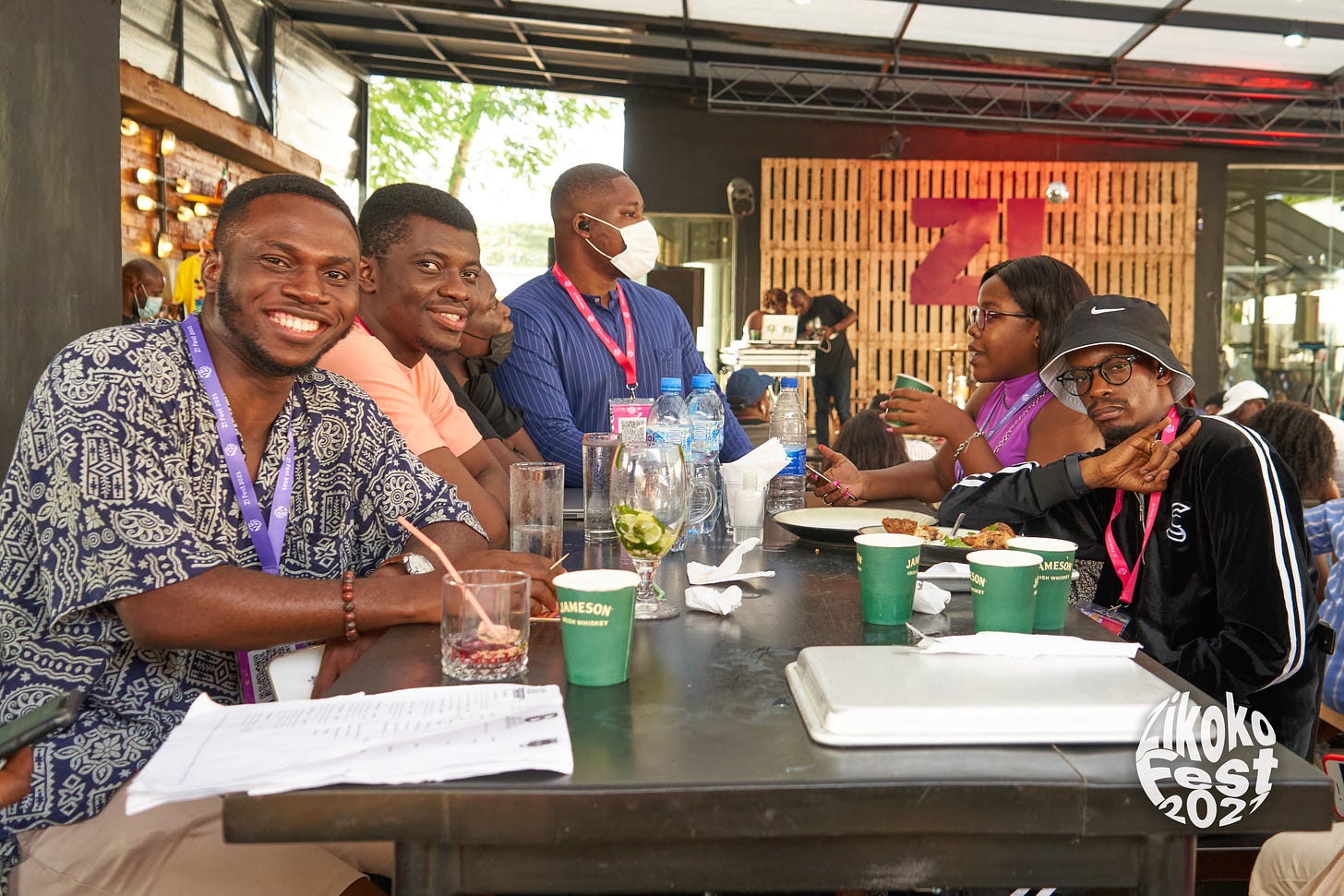Communiqué 15: How Zikoko taps into youth culture to build a media business
The story of Zikoko’s evolution into one of Nigeria’s most important cultural publications.
In the beginning – before Naira Life, Man Like, Sex Life, and all its famous content series – there was Zikoko the Buzzfeed clone, fueled by listicles and humour soaked in nostalgia and relatability.
Reading an early-day Zikoko listicle was like looking at your life’s story play out in a screen before you. Only, this story was meant to make you laugh.
In 2015, when I worked at Big Cabal Media, Zikoko’s parent company, I witnessed firsthand the gruelling foundational days of building the cultural powerhouse that Zikoko is today. I watched the then-Editor-in-Chief, Damilola Odufuwa, and her editorial team bat ideas for hours and churn out articles and listicles that people read, laughed at, shared on their social media, and moved on from within minutes to find the next interesting thing (as is typical of the modern-day audience).
What follows is the story of Zikoko, its evolution, its relationship with youth culture in Nigeria, and how it thinks about monetising that culture.
The beginning
Zikoko was founded in 2015 under the Big Cabal Media umbrella. It is the sister publication to one of Africa’s most prominent tech publications, TechCabal.
In its early days, Zikoko was patterned after Buzzfeed, which is to say that it churned out listicles and quizzes designed to be funny, engaging, and shareable. The humour was relatable and, unlike Buzzfeed’s, local.
It took shared Nigerian experiences and found creative ways to make fun of them. This is what endeared readers to the publication. People felt seen. They realised they were not alone. They saw how many other people experienced the same things they did growing up. And this fostered a sense of community in a way that no one had witnessed before.
Before most people understood the formula for virality, Zikoko had hacked it. Almost immediately after its birth, the publication became so popular that it inspired a short-lived rival, Party Jollof. But humour as a digital media strategy can only work for so long (ask Buzzfeed).
The demand to constantly create content that makes people laugh is excruciating. It takes a heavy toll on the editorial team as there’s pressure for everything to be funny, even if the author is not naturally funny.
Asking people to be consistently funny for five days a week and 52 weeks a year will definitely burn them out. Even comedians cannot keep up. Daniel Orubo (one of Zikoko’s earliest employees and a former Editor-in-Chief) talks about the resultant burnout in this interview (emphasis mine):
“After a year of doing listicles and quizzes, I kind of got bored. My editor-in-chief at the time wanted us to expand and do more long-form articles, and I agreed, but I guess what we were doing at the time was working, and people didn't want to switch it up too much. I was like, fair enough, but I don't think I can do this. I don't think I can sit down every single day and be funny on command. So I decided to leave [in 2016] for a French company that had moved to Nigeria.”
Big Cabal Media also went through a rough patch in 2017 that saw poor management decisions and infighting lead to a loss of momentum and identity crisis. During this period, the company’s co-founders split. In 2018, the board brought in Tomiwa Aladekomo, the former MD of Ventra Media Group. Aladekomo had helped to digitally transform one of Nigeria’s legacy publishers, Guardian Nigeria. Now, his task was to steady the Big Cabal Media ship and set course for new territories.
The evolution of Zikoko
Aladekomo’s arrival came with a new management team and a series of editorial changes. Fu’ad Lawal joined the company from Ringier Africa and soon became Zikoko’s Editor-in-Chief, which he has since moved on from. The publication also gradually shifted from focusing primarily on humour and listicles to telling more culturally impactful stories.
“When I joined Zikoko, the [content] was relatable. It was mostly humour and funny content. But frankly, I don't feel funny. At the time, I knew that I wanted Zikoko to explore beyond the short-form format and listicles. I wanted more. I wanted people to see themselves in the stories. I wanted stories that had more depth. In hindsight, it feels like strategy, but it was mostly slapping things on the wall until something stuck,” Lawal tells me.
Over the years, Zikoko went from subsisting on stories like ‘16 Signs You Are Just Like Your Nigerian Mother’ to stories like ‘5 Nigerian Widows Talk Life After Their Husbands’ Deaths’. Both are listicles, quite alright, and they both require varying levels of work. But they also typify the publication’s evolution. Humour remains elemental to Zikoko’s existence, but it is no longer the fence that encloses its identity.
“One of the things that we decided on during Zikoko's design sprint and personality exploration is that it is limitless. And so, we don't see any limits to the forms in which we explore [stories],” Aladekomo says.
He adds:
“Zikoko today is committed to telling the stories that matter, to capturing all the things that are important to young people, telling stories about them and examining them in a range of different formats. That's everything from written articles to listicles, to newsletters, podcasts (which are coming), and video content. We want to be sitting at the heart of the most important conversations that young people across Nigeria are having. We want to be influencing those conversations. We want to be their voice and reflection. And we want to be shaping the culture.”
How Zikoko taps into youth culture
Integral to Zikoko’s new identity is that its content is now built around interests (which are then curated into ‘Stacks’). Think about it like this: Zikoko used to be known for listicles and memes (formats), now it is known for its series of stories covering topics that interest the average Nigerian youth: sex, relationships, money, emigration, feminism, masculinity, etc. Exploring the Stacks is almost akin to rummaging through Netflix’s content library.
In theory, each interest (or Stack) can be presented in multiple formats: long-form articles, listicles, videos, newsletters, podcasts, native social media formats, etc.
Beyond the format variety, each of these Stacks can one day be spun off into a standalone publication, developed into a community, packaged into a paid event, or maybe even reformatted into a video series. Naira Life can become Zikoko Money. Sex Life can become Zikoko Sex. Man Like can become Zikoko Men. Zikoko Her can become, well, Zikoko Her. All of these can become TV shows. The stacks present an opportunity for Zikoko to go as deep into any topic of interest as it wants and be as creative with its presentation as money and time allow, as long as it is important to young Nigerians.
Aladekomo says that part of Zikoko’s raison d'être is to touch the cultural nerve and speak about the things that are important to young people. “That can be their careers or money, but it can even be as simple as whether egusi soup is better than oha soup.”
One of the ways Zikoko builds its audience is by factoring habit-formation into its products. For example, each major Stack has a newsletter, and each newsletter runs on a strict schedule. Naira Life, for instance, arrives at 9 am every Monday, such that everyone subscribed knows to expect it at that time. The logic behind this is that schedules ensure consistency and create expectations around the content.
Building this engine of consistency and deliberation requires tremendous investments in talent training and development. It requires the editorial staff not just to be good with words but to deeply understand the content ecosystem they operate in. (It’s why Zikoko writers often go on to occupy prominent roles in the content industry.) But it also requires significant financial resources. It’s often difficult to retain this quality of talent once they reach a particular industry threshold, as I explain in this essay. (Don’t be surprised if Big Cabal Media raises capital in the near future.)
Monetising culture: Ideas are great, execution is the devil
Saturday, August 28, 2021, answered a question I’d been pondering for some years: how will Zikoko expand its monetisation potential?
In hindsight, the answer is obvious, but when you’re there in the beginning, in the publication’s early days, the answers are not exactly clear. Even when you are in the middle of the madness (as some of the people I talked to for this essay are or have been), the answers are difficult to come by. Ideas are great, but execution is the devil.
That day, I sat on the barstool, trying to savour the moment but mostly looking around at the hundreds of young people who had gathered for Zikoko Fest 2021 in Victoria Island, Lagos. Some were dancing, some were buried in conversations, some were lost in their food, some were taking pictures, some others were playing games, and some were purchasing Zikoko merch.
I thought about this: if 300 people had gathered at that venue to enjoy themselves, paying N5,000 (~$9) each to get in and possibly spending more on food and drinks, what would it be like when this movement grows bigger and events like this become more frequent?
Zikoko made money through native advertising (branded listicles and quizzes) in its early days, but the potential to diversify was always there. The question was how the company would pull it off. That evening, I realised how far along its efforts had come.
“One of our fundamental thesis [at Big Cabal Media] is that having a single revenue line is death for any media business. For any media business to thrive in the long term, they need to have multiple revenue streams that are working well at any given time,” Aladekomo tells me.
Native advertising remains important to Zikoko, but it has added to the mix newsletter sponsorships, sponsored social media posts, paid events like Zikoko Fest, merchandise sales, and sponsored editorial projects such as Jollof Road.
Perhaps the best way to distil Zikoko’s story is to say that its evolution mirrors that of youth and Internet pop culture in Nigeria. Lawal says, “I feel like Zikoko is holding a mirror [up to society]. That's why people see stuff there and recognise themselves, even though it was mostly funny stuff. There were heavy cultural themes to it. I think that Zikoko is also working to be a magnifying glass for society. [It focuses] on stories that people would normally ignore and never stop to think about. I don't think there is anybody in this country doing it the way Zikoko is doing it.”
He’s right.
Before you go…
From next month, Communiqué will be coming to you weekly, every Tuesday at 7 AM (GMT+1). You will get the monthly essay first, followed by shorter weekly updates. Through these updates, I will respond to specific questions about media and content strategy from the CMQ Community. I will also write about other topics inspired by the things I’ve read.
If you’d like to submit a question or suggest a topic for the weekly updates, please do so here:









Glad I jumped on your email list. Never a bad time reading anything here.
This is a beautiful read and it highlights how there is a lot of untapped potential in the Nigerian media space. With more innovation, I believe we would see a more positive change in the way Nigerian pop culture is projected. Well Done David🙌🏾, I am looking forward to the weekly newsletters